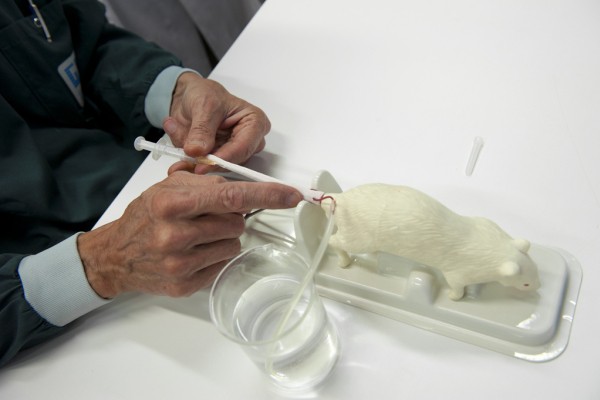3Rs websites renewed
10 years agoThe 3Rs-Centre Utrecht Life Sciences has launched two completely renewed websites today, contributing to reduce the number of laboratory animals and to refine animal experiments. Both websites contribute to the legal obligation of researchers to replace, reduce and refine animal experiments. They are essential tools for researchers and save time-consuming searches.
The Interspecies Database and the Humane Endpoints website are part of the recently started 3Rs-Database program of the 3Rs-Centre Utrecht Life Sciences (ULS). In this way, the program offers accessible information and helps in the reduction and refinement of animal experiments, an obligation for researchers according to the European Directive 2010/63/EU. Above this, it helps the Animal Welfare Bodies and Competent Authorities in project evaluation. Both websites have undergone a substantial makeover and have a new look-and-feel. Above all, they are more user friendly.
The Interspecies Database
This website provides insight into physiological, anatomical and biochemical parameters of different animal species and humans. Data can be compared in a user-friendly way. By using the database, researchers can design animal experiments smarter in terms of choice of an animal model, which better approaches the human situation. This saves not only time and money, but especially laboratory animals. Above all, this improves the scientific research quality. Users of the database have reported a reduction in animal use, on average 20% on a yearly basis. Some users have indicated a reduction of 40% in animal use. The website has been initiated by the Dutch Institute for Public Health and the Environment and they are responsible for the database content.
The Humane Endpoints website
This website gives insight into the recognition and application of humane endpoints in rodents. The website contributes to refinement, the prevention of unnecessary suffering in laboratory animals, by offering information, videos and photographs of rodent species. In addition, the website provides free training modules (only accessible after registration). The website is successfully used in the compulsory laboratory animal science course at Utrecht University, but also in other laboratory animal sciences courses worldwide.
Expanding with other 3Rs information sources
Both information sources were originally established with support from the government and other funders, but lacked continuous financial support. The 3Rs-Centre ULS has therefore adopted the sites for continuation in a public-private partnership. The aim is to expand the 3Rs-database program with other 3Rs information sources, for example with a database on laboratory animal replacement methods.
About the 3Rs-Centre ULS
The mission of the 3Rs- Centre ULS is to stimulate the development, acceptation and implementation of replacement, reduction and refinement methods (3Rs) within the Utrecht Life Sciences (ULS), an open innovation network in the Netherlands, which unites Utrecht University, the University Medical Center Utrecht, government and business. The Centre communicates about the 3R’s and builds and maintains a network of 3Rs experts within and outside the ULS. The Centre is part of the department of Animals in Science and Society, faculty of Veterinary Medicine, Utrecht University.


